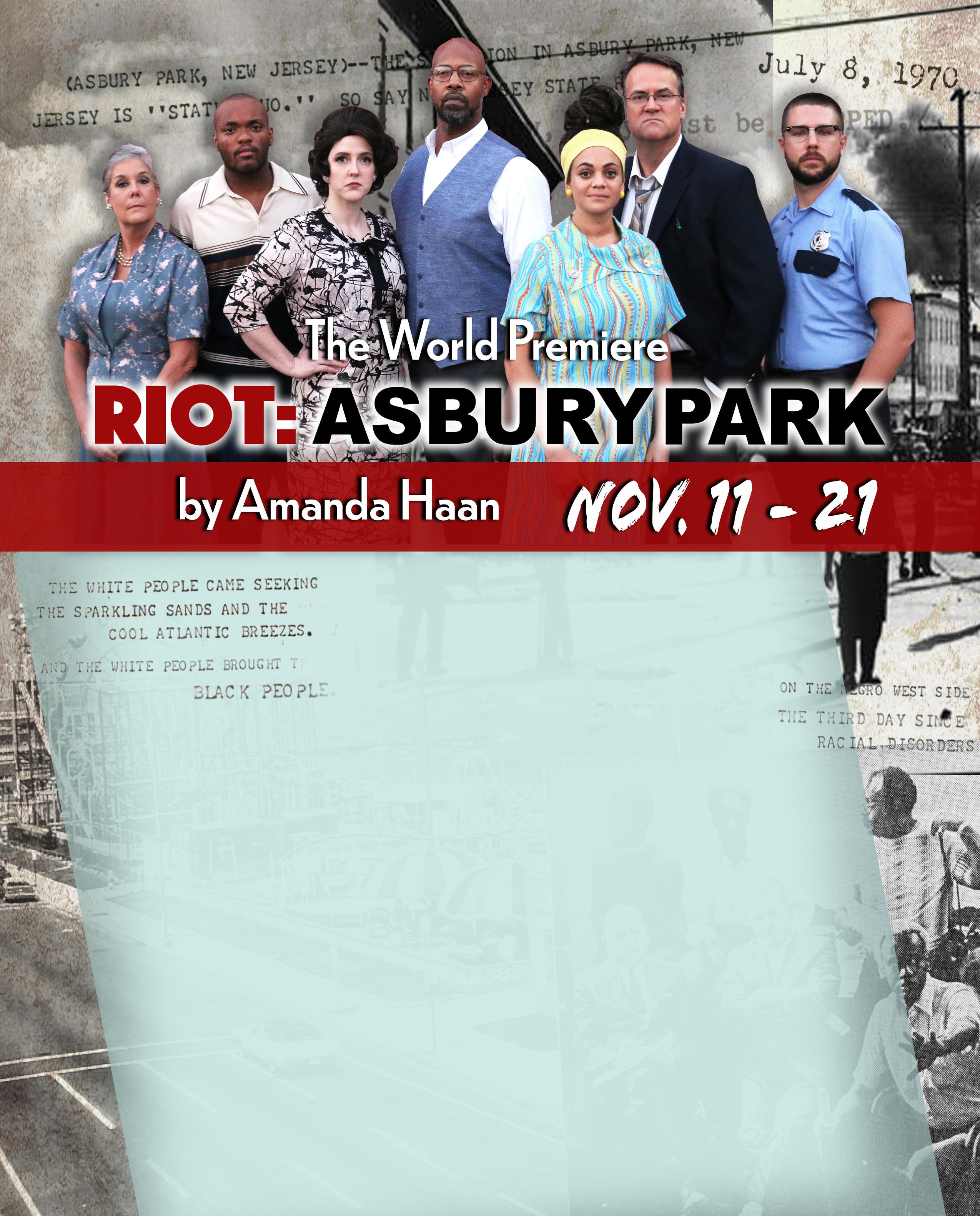
2 minute read
How would you stop a riot?
Riot: Asbury Park, The World Premiere. Opens Nov. 11
After a few days of violent rioting, a newly made detective and a conflict consultant are given a mandate by the police chief and the mayor to conduct a private meeting with three black and three white residents to try to assess the social breakdown, promote communication between the groups, and most importantly to draw up a proposal of how to end the riot. This story is about community, racism, disenfranchisement, cooperation, honesty, patience, and perseverance. Based on true events.
Advertisement
The idea for writing the story of Riot: Asbury Park came to Kentucky writer Amanda Haan after she read a Look Magazine article from 1971 in an antique store. Originally from New Jersey, Amanda set about interviewing as many people as she could who were involved in the meetings that took place connected to the July 1970 riots that happened in Asbury Park. She began work in 2008 and then had some readings of the script. She had hoped for a film version of the script, but timing didn’t work out for that. In the play, a black male police detective and a white female facilitator are given the task of bringing together a group of three black residents and three white residents to come up with a set of principles that the community could agree on during the rioting in Asbury Park, N.J.
Director Michael Cochran says, “What Amanda has written is as relevant today as it was when the actual event happened. It is a dialogue of people trying to understand each other and break through the anger and resentment that is tearing their community apart. The Asbury Park riots were centered on many of the issues that still resonate with the Black Lives Matter movement and demonstrations last year. In addition, the need to build trust and find common ground can be seen in many areas of our society today that aren’t just related to race. I’m sure that when audiences walk out of the theatre after the show, they will be talking about the unconscious ways we stereotype people who don’t think like us and how the real-life people portrayed by the characters in the play managed to break through some of those barriers.
The cast includes MHT veterans Jalen Harris, Trenisha Jones, Robert Carter, Kacey Darling, Sally Carter, Reid Draper and newcomer Dante Murray! Directed by Michael Cochran, set/lighting design by Tom Hansen, costume design by Angela Hoerner. Set construction by Jerome Veit, Stage Manager is Caleb Buford.






